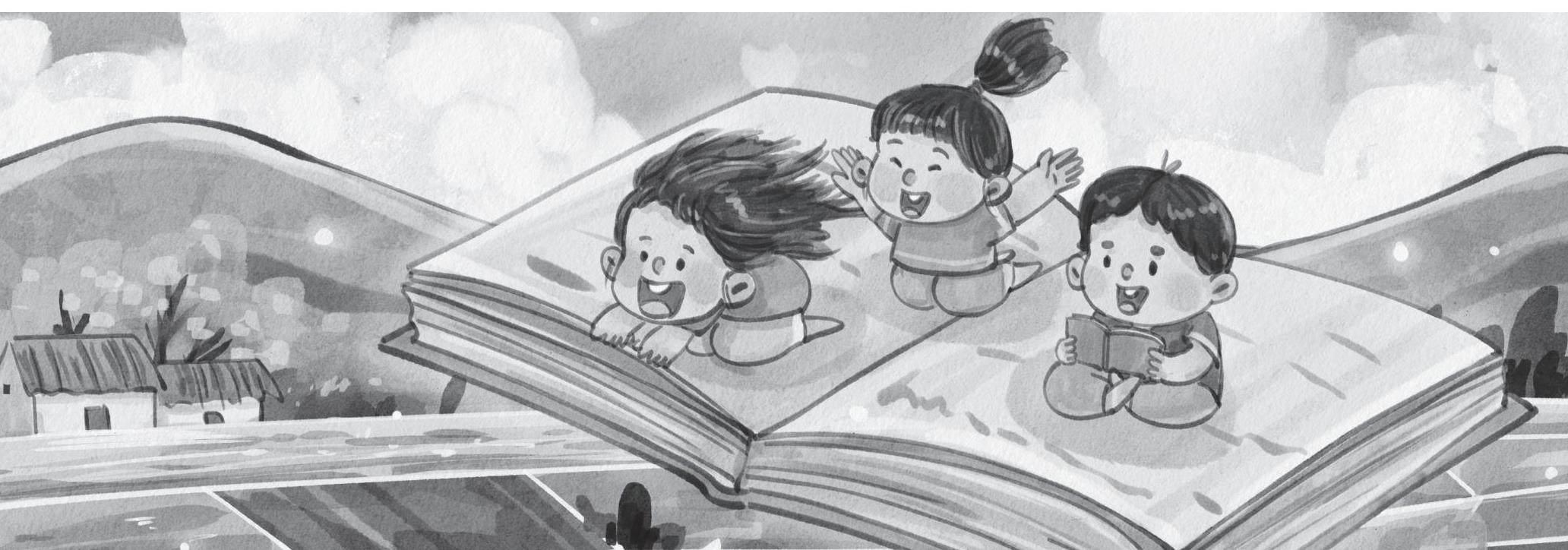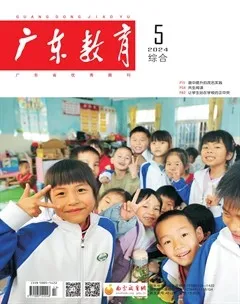深度学习视域下的小学英语教学改进策略
傅娜

《义务教育英语课程标准(2022年版)》提出了培养和发展学生的语言能力、学习能力、思维品质和文化意识的学科核心素养,落实立德树人根本任务的课程目标。深度学习是关注学生深层理解,促进学生核心素养发展的学习方式,是落实立德树人根本任务的重要途径。但在实践教学中,一些教师由于对课堂深度学习理解片面而产生认识误区,导致课堂教学形式化、碎片化、浅层化及表面化问题突出,课堂效率不高。
一、对课堂深度学习的认识误区
1.重学生主体,轻教师主导
在沪教牛津版(深圳用)五年级下册Unit 6 “Holidays”Ask and answer的拓展环节,授课教师设计了以下拓展活动:Talk and share your summer holiday plans with your classmates.学生小组交流后分享展示了各自的暑假计划,提出了这些问题:
Where will you go this summer holiday?
Who will go there with you?
How do you get there?
Where will you stay?
How long will you stay there?
What will you do there?
在此案例中,學生看似能联系现实生活,模仿课本语言知识创编暑假计划的对话,语言内容生动、丰富,学生较好地内化了目标语言,但因缺乏教师的积极有效引导,学生所讨论的内容仅限于旅行计划,未能拓展思维,学生只是简单地习得课本的浅层知识与技能,未能实现真正意义的深度学习。
2.重高阶思维,轻低阶思维
《攀登英语阅读系列·分级阅读第三级》“I Want to Move”,讲述了兔子Tom搬家的故事,Tom三次想搬家,遭遇了各种麻烦与难题,在它最无助的时候,爸妈及时出现并把它带回了家,它意识到家才是最温暖的港湾。语言能力目标是学生能在问题的引导和图片提示下,正确理解故事大意和关键信息。教师先带领学生读图了解文本大意,完成文本挖空练习,之后提出开放性问题。
T: What do you think of Toms parents?
Ss: They are great and nice. They follow Tom all the way and appear immediately when Tom is in trouble.
They are selfless. They encourage and support Tom to move.
T: So excellent! So what can we learn from the story?
Ss: Dont move. It is dangerous outside.
Parents are great and kind. They always give us warmness when we are sad or in trouble.
East or west, home is the best.
此案例中,教师还未激活和联结学生的已知,学生的低阶思维能力还未得到充分发展,教师就提出开放性的问题来评价和迁移,导致学生的回答受限,拘于常规理解,学生评价与批判的高阶思维能力未得到开发。
3.重教学难度,轻学习深度
在五年级下册Unit 11 “Chinese festivals”Culture corner板块的拓展环节,授课教师让学生阅读介绍西方节日的绘本,然后,学生开展角色扮演并介绍西方国家是如何庆祝这些节日的。学生四人一组做采访创编对话:
Where are you from?
Whens Easter/ Halloween/ Thanksgiving/ Christmas Day?
What do you do on Easter/ Halloween/ Thanksgiving/ Christmas Day?
How do you feel on Easter/ Halloween/ Thanksgiving/ Christmas Day?
进而提炼本节课的主题意义:Different countries, different customs.
在实际演练中,由于该话题远离学生的生活实际,且学生还未能充分理解并学会运用课本语言知识,很难顺利进行语言输出。这样大大增加了语言学习的难度,学生不会表达,不敢表达,挫败感逐渐增强,英语学习的兴趣和自信心逐渐降低。
二、深度学习视域下的课堂教学改进策略
1.注重教师引导作用,发挥学生主体地位
在学习过程中,教师要给予学生充分思考、讨论和交流的时间和空间,并通过搭建学习支架、继续追问、及时点拨、引导启发等教学手段,促进师生、生生之间的互动,实现学生对知识的自主建构、迁移应用。针对案例1的对话活动,教师可通过合理有效的引导,丰富学生关于暑假计划安排的对话内容。教师与学生问答如下:
T: Children, last class we have learned the Lissummer holiday plans. What about yours? Lets say and share together.
Ss: Ill go to Beijing.
Ill go to Xian.
T: Good! Many of you have a travel plan. Can you think and say what else will you do this summer holiday?
Ss: Ill go to my hometown. Ill do many interesting things such as: go fishing, grow vegetables, feed chicks and ducks.
Ill have swimming lessons.
Ill read some books.
T: Oh, sounds great. You have so many plans for summer holiday. Now lets talk and share your summer holiday plans with your partners.
S1: Mandy, summer holiday is coming. What will you do this summer holiday?
S2: Ill have dancing class. Then Ill go to Beijing with my parents.
S1: Cool! How will you get there?
S2: We will get there by plane.
教師通过追问“What else will you do this summer holiday?”引导学生从文本教材走向生活实际,使学生的语言表达不仅局限于课本知识,而且结合现实生活,创造性地迁移运用所学语言,实现了深度学习。更重要的是,教师引导学生学会合理地制定、安排假期计划,使假期生活变得有意义且丰富多彩,实现了学科的育人目标。
2.精简低阶思维活动,聚焦高阶思维发展
低阶思维能力和高阶思维能力是一个统一的整体。低阶思维层次的活动是进行高阶思维活动的基础。教师可通过设计假设性问题,激活学生已知,引导学生联系现实生活,进行批判性思考。例如对案例2可以这样处理:
T: If you are Toms parents, what will you do?
S1: I will encourage him to go outside and have a try. When he really encounters difficulties, he will learn something by himself.
S2: I will support him, but I will follow him all the way silently.
S3: I will not let him move because he is too young to deal with the troubles he meets.
S4: I will not let him go outside because I will feel lonely and disappointed.
接着,教师引导学生对Tom父母进行评价:What do you think of Toms parents?此时学生的评价呈现多元化,不仅会表达父母的爱是无私的、伟大的,同时也是自私的。
然后,教师继续追问:If you have difficulties in life, what will you do?
学生的观点如下:
Ill relieve stress by listening to music, having a big dinner or doing sports.
Ill talk with my friends or parents and ask for their advice.
Ill have a travelling plan and relax myself.
3.遵循教学规律,实现深度学习
深度学习的“深”并不是指增加教学内容的难度,而是建立在学生理解语言知识的基础上,通过创设真实情境,帮助学生体验与反思。对于案例3的拓展环节,教师可以这样组织学生小组讨论自己国家的传统节日:
S1: Whens the Spring Festival/ Dragon Boat Festival/ Mid-Autumn Festival/ Double Ninth Festival?
S2: Its in...or...
S1: Hows the weather like at the Spring Festival/ Dragon Boat Festival/…?
S2: Its...
S1: What do you usually do at the Spring Festival/ Dragon Boat Festival/ …?
S2: I/ We usually...
教师引导学生把课本语言知识与生活经验链接,这种由文本走向现实生活的对话方式,使学生乐于表达,勇于表达,在快乐学习的同时学会运用目标语言介绍中国的传统节日,达到育人目的。
接着,教师设问启思:Why do we eat fish and dumplings or use red things at the Spring Festival?Why do we have a big dinner at the Spring Festival?...引导学生提炼主题意义:加深对中华优秀传统文化的认识与热爱,了解并尊重传统民俗文化。这样基于学生的生活经验提炼主题意义,遵循了教学规律,引导学生从理解走向表达,真正实现了深度学习。
责任编辑 魏文琦

